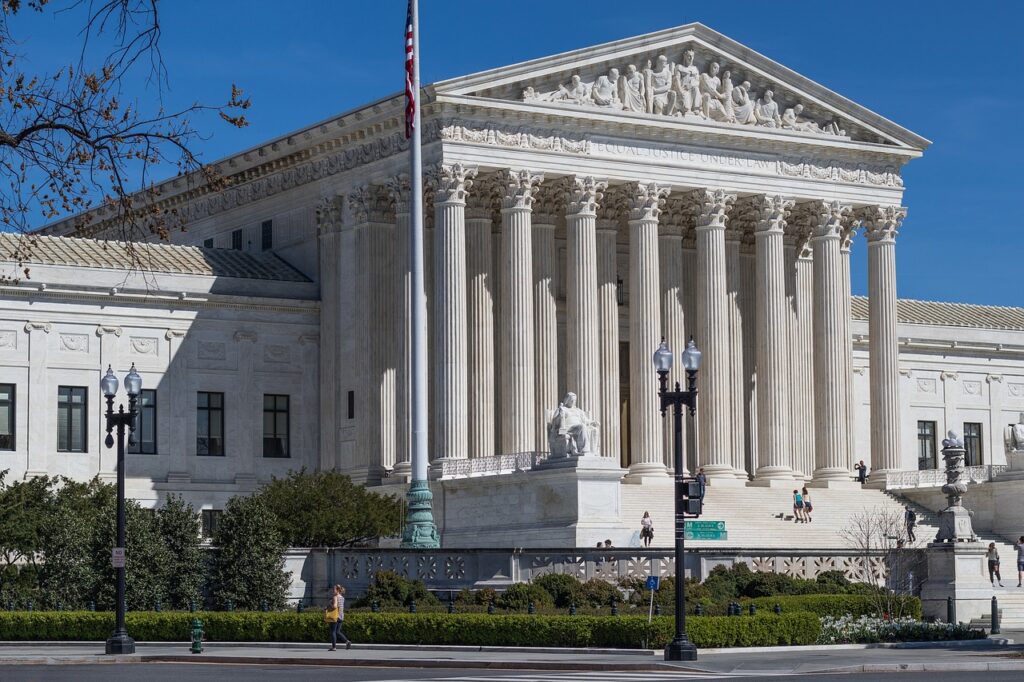Four months ago, the United States Supreme Court handed down its decision in one of the most significant cases involving religious liberty in the past 30 years. And Friday’s ruling in Tandon v. Newsom is being recognized as yet another victory for religious conservatives in America.
In response to COVID-19, the state of California imposed restrictions on indoor gatherings. Those restrictions were subsequently challenged by a group of plaintiffs seeking to hold private religious gatherings both indoors and outdoors at their homes. The plaintiffs moved for a preliminary injunction to prohibit enforcement of the restrictions, but the motion was denied by a district court. The plaintiffs then appealed to the Ninth Circuit and moved for an injunction pending appeal. The Ninth Court denied that motion. The Supreme Court then stepped into the fray April 9th, holding that California’s COVID limitations on religious gatherings in homes likely violates the “Free Exercise Clause” of the First Amendment.
California limits gatherings in people’s homes to members of just three households. This blanket rule applies to any person or people gathering in a home for any reason, including religious ones.
A link here shows that the Supreme Court made four points in granting the application for a preliminary injunction pending the Ninth Circuit’s disposition of the appeal:
First, the Court stressed that government regulations are not neutral and generally applicable, and therefore trigger strict scrutiny under the Free Exercise Clause, “whenever they treat any comparable secular activity more favorably than religious exercise” (original emphasis). That a government treats some comparable secular activities “as poorly or even less favorably” than the religious activity at issue does not save the regulation under the Free Exercise Clause.
Second, the Court noted that “whether two activities are comparable for purposes of the Free Exercise Clause must be judged against the asserted government interest that justifies the regulation at issue.” Comparability must be assessed by the risks that various activities pose, rather than on the reasons why people gather.
Third, the government has the burden to establish that its restrictions on gatherings satisfy strict scrutiny. Narrow tailoring, a necessary predicate for strict scrutiny, requires that the government “do more than assert that certain risk factors ‘are always present in worship, or always absent from . . . secular activities’ the government may allow.” Instead, the government must show that, where it permits other activities to proceed with precautions, the “religious exercise at issue is more dangerous than those activities even when the same precautions are applied.”
Fourth, the Court concluded that even if the government withdraws or modifies a restriction during the course of litigation, it does not moot the case if the plaintiffs remain under a constant threat the government will reinstate the restriction.
On these four points, the Court concluded that the plaintiff’s challenge was likely to succeed. What has been made clear, and not just in California, is that these COVID restrictions seem to favour some gatherings over others. For instance, places such as “Big Box” stores and movie theatres welcome more people into a confined area than a household prayer gathering. The Supreme Court also observed that the lower courts could not prove that a retail store environment poses a lower risk of COVID transmission than a house prayer group.
In 1982’s United States v. Lee (1982), the Supreme Court ruled “when followers of a particular sect enter into commercial activity as a matter of choice, the limits they accept on their own conduct as a matter of conscience and faith are not to be superimposed on the statutory schemes which are binding on others in that activity.”
But there has been a marked shift in law pertaining to religious freedom, and detractors are willing to lay that at the feet of Amy Coney Barret’s nomination.
On November 25th, the Supreme Court ruled in Roman Catholic Diocese of Brooklyn v. Cuomo that some houses of worship would be allowed to operate in defiance of New York state’s rules seeking to limit the spread of COVID-19.
In 2014’s Burwell v. Hobby Lobby, private businesses were permitted to refuse to include birth control coverage in its employees’ health plan despite a federal regulation requiring these businesses to do so. According to Vox, “Hobby Lobby established a strong presumption that when a religious objector seeks an exemption from a federal law, the objector will get that exemption barring unusual circumstances.”
